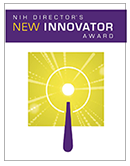2012 Awardees

Christopher D. C. Allen, Ph.D.
University of California San Francisco
Project Title: Cellular Interactions in Asthma
Grant ID: DP2-HL117752
Christopher Allen received his B.S. in Biology at MIT in 2001, and his Ph.D. in Biomedical Sciences at UCSF in 2007. For his doctoral studies he worked under the mentorship of Jason Cyster at UCSF, characterizing the mechanisms responsible for cell migration and selection within the germinal center, a critical site for antibody affinity maturation. Following completion of his Ph.D., he was then selected for an early opportunity to start his own research group as a faculty fellow in the Sandler Asthma Basic Research Center at UCSF. In 2012, he was selected for a faculty position at UCSF as an Investigator of the Cardiovascular Research Institute and an Assistant Professor in the Department of Anatomy. His basic research program focuses on the cellular immune response in asthma, using two-photon microscopy to visualize interactions among cells in the lungs as well as in lymphoid organs that ‘prime’ cells for immune responses in the respiratory tract, with an emphasis on the development and function of IgE antibodies that contribute to allergic responses.

Debra Auguste, Ph.D.
The City College of New York
Project Title: Personalized Therapeutics for Inhibiting Breast Cancer Metastasis
Grant ID: DP2-CA174495
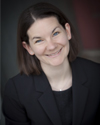
Emily Balskus, Ph.D.
Harvard University
Project Title: Biocompatible Chemistry for In Vivo Metabolite Modification
Grant ID: DP2-GM105434
Emily began her scientific career at Williams College, graduating in 2002, as valedictorian with highest honors in chemistry. After spending a year at the University of Cambridge as a Churchill Scholar in the lab of Prof. Steven Ley, she pursued graduate studies in the Department of Chemistry and Chemical Biology (CCB) at Harvard University, focusing on the development of asymmetric catalytic transformations and their application in the total synthesis of complex molecules under Prof. Eric Jacobsen and receiving her Ph.D. in 2008. From 2008–2011, Emily was an NIH postdoctoral fellow at Harvard Medical School in the lab of Prof. Christopher T. Walsh where her research involved elucidating and characterizing biosynthetic pathways for the production of small molecule sunscreens by photosynthetic bacteria. She also received training in microbial ecology and environmental microbiology as a member of the Microbial Diversity Summer Course at the Marine Biology Lab at Woods Hole during the summer of 2009. Emily joined Harvard’s CCB faculty in 2011, and she is currently an Associate Professor leading a research group interested in problems found at the intersection of chemistry and microbiology.

Trever G. Bivona, M.D., Ph.D.
University of California San Francisco
Project Title: Discovery of Rational Companion Therapeutic Targets to Optimize Cancer Treatment
Grant ID: DP2-CA174497
Dr. Trever Bivona is a board-certified medical oncologist with a Ph.D. in cell and molecular biology. He maintains an active academic clinical practice while also leading a basic and translational research laboratory focused on cancer genetics and precision medicine. A major research interest is enhancing the understanding of the molecular basis of targeted cancer therapy response and resistance. He leads a multi-disciplinary team of investigators in laboratory-based, patient-focused investigation and is a principal investigator on clinical trials, enabling a bench-to-bedside multi-faceted research program. The overall goal of these efforts is to improve survival in molecular subclasses of cancer patients through novel precision medicine approaches.

Josh L. Bonkowsky, M.D., Ph.D.
University of Utah
Project Title: Trans-Cellular Activation of Transcription to Analyze Dopaminergic Axon Reorganization
Grant ID: DP2-MH100008
Josh Bonkowsky, M.D., Ph.D., is an associate professor of Pediatric Neurology at the University of Utah. After his undergraduate training at Harvard University, Dr. Bonkowsky received a Fulbright Fellowship to Vienna, Austria, before his medical and Ph.D. training at the University of California, San Diego. Dr. Bonkowsky then moved to the mountains of Utah to do his clinical residency training in pediatrics and pediatric neurology at the University of Utah. Since 2006, he has been on faculty at the University of Utah, where he cares for patients with neurological disorders, and studies the mechanisms of nervous system development. His particular interests are studying how connections in the brain are formed, both during normal development, as well as when affected by diseases such as prematurity. His Innovator award focuses on a key problem in development of the brain- the necessity for accurate and precise connections- and developing a new method for visualizing and manipulating those connections.
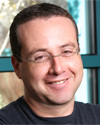
Elhanan Borenstein, Ph.D.
University of Washington
Project Title: A Computational Framework for Designing Microbiome Manipulation
Grant ID: DP2-AT007802
Elhanan Borenstein is an Associate Professor of Genome Sciences at the University of Washington, with an adjunct position in the Department of Computer Science and Engineering. He is also an external professor at the Santa Fe Institute for complexity science. Dr. Borenstein received his Ph.D. in computer science from Tel-Aviv University, Israel, and held a joint postdoctoral fellowship at the Department of Biology in Stanford and at the Santa Fe Institute. He additionally has extensive professional experience in the hi-tech industry, where he held top management positions in several hi-tech companies. Dr. Borenstein is the recipient of various awards including the Alfred P. Sloan Fellowship and the NIH New Innovator Award. Dr. Borenstein integrates metagenomic data with methods inspired by systems biology, network theory, machine-learning, and statistical inference to develop a variety of computational methods for studying the human microbiome. His work focuses on reconstructing predictive, systems-level models of the human microbiome and on integrative, multi-meta-omic analysis, aiming to provide a better principled understanding of the microbiome and its role in human health. For more information visit http://elbo.gs.washington.edu/.
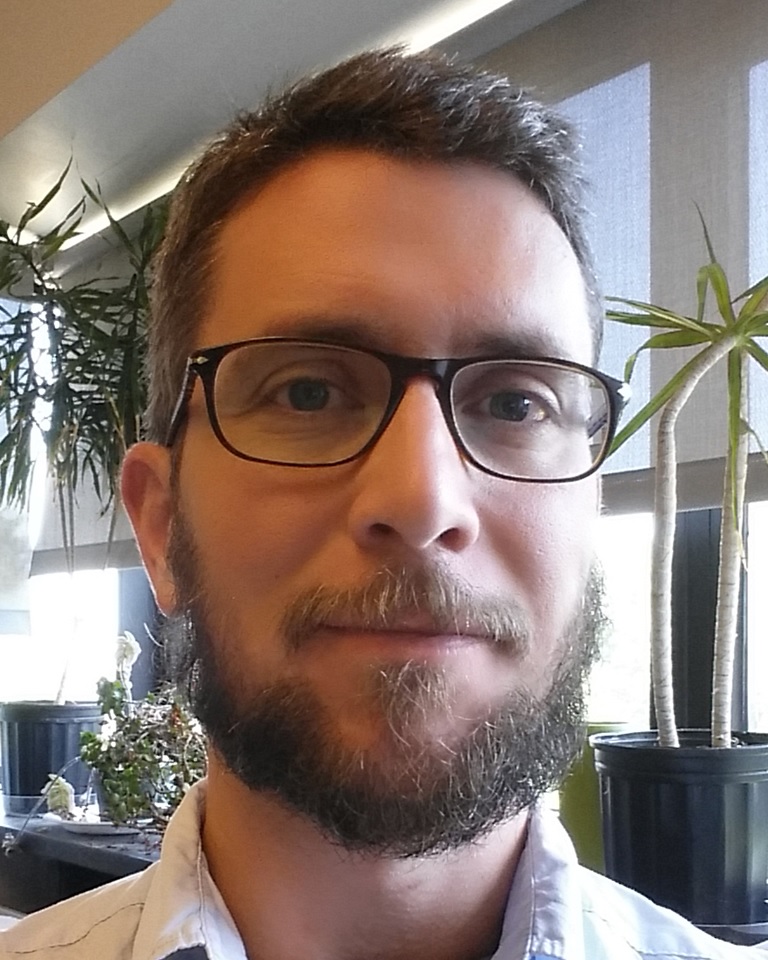
Cliff Brangwynne, Ph.D.
Princeton University
Project Title: Cell Growth Control by Cell and Organelle Size-Dependent Ribosome Biogenesis
Grant ID: DP2-GM105437
Cliff Brangwynne received a B.S. in Materials Science and Engineering from Carnegie Mellon University in 2001, and his Ph.D. in Applied Physics in 2007, from Harvard University, working in the group of David Weitz. He was a visiting fellow at the Max Planck Institute for the Physics of Complex Systems in Dresden, and was a Helen Hay Whitney Postdoctoral Fellow in the group of Tony Hyman at the Max Planck Institute for Molecular Cell Biology and Genetics in Dresden. He is currently an assistant professor in the Department of Chemical and Biological Engineering at Princeton University. His research group uses tools and concepts from soft matter physics to study the assembly, properties and function of living matter. Their work has revealed that membrane-less organelles represent condensed liquid-like states of RNA and protein, which assemble by a type of intracellular phase transition.

Amy Hitchcock Camp, Ph.D.
Mount Holyoke College
Project Title: A Feeding Tube Model for Bacterial Cell-Cell Communication
Grant ID: DP2-GM105439
Amy Hitchcock Camp is an Assistant Professor in the Department of Biological Sciences at Mount Holyoke College. She received her A.B. in Molecular Biology at Princeton University and her Ph.D. in Biological Chemistry and Molecular Pharmacology at Harvard Medical School. During her graduate research under the supervision of Dr. Pamela Silver, she investigated the ubiquitination of membrane proteins at the endoplasmic reticulum. Following a year as a Visiting Assistant Professor at Mount Holyoke College, Dr. Camp was a Helen Hay Whitney Postdoctoral Fellow in the laboratory of Richard Losick at Harvard University. Her research as a postdoctoral fellow and now as a principal investigator aims to identify novel mechanisms of gene regulation and cell-cell communication that drive bacterial differentiation. Dr. Camp is a recipient of the Harvard Medical School Hauser Teaching Award, NIH Academic Research Enhancement Award, and the NIH Director’s New Innovator Award.

Jan Carette, Ph.D.
Stanford University
Project Title: Genetic Approaches to Discover Host Factors Critical to Dengue Virus Infection
Grant ID: DP2-AI104557
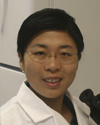
Shuibing Chen, Ph.D.
Weill Medical College of Cornell University
Project Title: Studying the Progression and Regression of Beta Cell Dysfunction in Type 2 Diabetes
Grant ID: DP2-DK098093

Ping Chi, M.D., Ph.D.
Sloan-Kettering Cancer Center
Project Title: An Integrative Approach to Target Lineage-Specific Oncogenic Transcription Factor
Grant ID: DP2-CA174499
Ping Chi is an Assistant Member in the Human Oncology and Pathogenesis Program (HOPP), and an Assistant Attending Physician and the Geoffrey Beene Junior Faculty Chair in the Department of Medicine. She completed clinical training in internal medicine at the Brigham and Woman’s Hospital and Medical Oncology at Memorial Sloan-Kettering Cancer Center, and a concurrent postdoctoral training in epigenetics and chromatin biology in the C. David Allis’ lab at the Rockefeller University. Her current laboratory research focuses on understanding the genetic and epigenetic mechanisms of transcriptional activation of novel oncogenic transcripts and oncogenic transcription factors in solid tumor malignancies. Through mechanistic studies, she aims to identify novel therapeutic strategies to target oncogenic transcription factors and aberrant transcriptional activation of oncogenes. She also maintains an active academic clinical practice, leads early phase clinical trials and works with a multidisciplinary team to care for patients with melanoma and sarcomas, with the goal to expedite clinical translation of laboratory research.

Mark Churchland, Ph.D.
Columbia University Health Sciences
Project Title: A Dynamical Systems Approach to Fundamental Questions in Neuroscience
Grant ID: DP2-NS083037
Professor Churchland is an Assistant Professor in the Department of Neuroscience at Columbia University Medical Center. He is the co-director of the Grossman Center for the Statistics of Mind. He received his B.A. in mathematics and psychology from Reed College in Portland Oregon. He received his Ph.D. in neuroscience from the University of California San Francisco. His postdoctoral work was in the Neural Prosthetic Systems Laboratory at Stanford University. Professor Churchland’s laboratory focuses on how the brain controls voluntary movement.
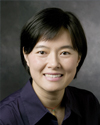
Bianxiao Cui, Ph.D.
Stanford University
Project Title: Engineering External Forces for Manipulating Cargo Transport in Live Neurons
Grant ID: DP2-NS082125
Bianxiao Cui is an Assistant Professor of Chemistry at Stanford University. She received a B.E. degree from the University of Science and Technology of China, a Ph.D. degree in Physical Chemistry from the University of Chicago, and a postdoctoral training in biophysics with Prof. Steven Chu in Stanford University. Her main area of interest is to develop physical and chemical approaches to study biological processes in cells. In particular, she focuses on (1) developing vertical nanopillar-based electric and optic sensors for sensitive detection of cellular functions; (2) investigating the axonal transport process using optical imaging, magnetic and optical trapping, and microfluidic platform, (3) using optogenetic approach to investigate the temporal and spatial control of intracellular signaling pathways. Her research achievement is recognized by numerous awards and distinctions include NSF inspire award (2013), NIH New Innovator Award (2012), NSF CAREER award (2011), Packard Fellowships in Science and Engineering (2010), Hellman Scholar (2012), Searle Scholar Award (2009) and Dreyfus New Faculty award (2009).
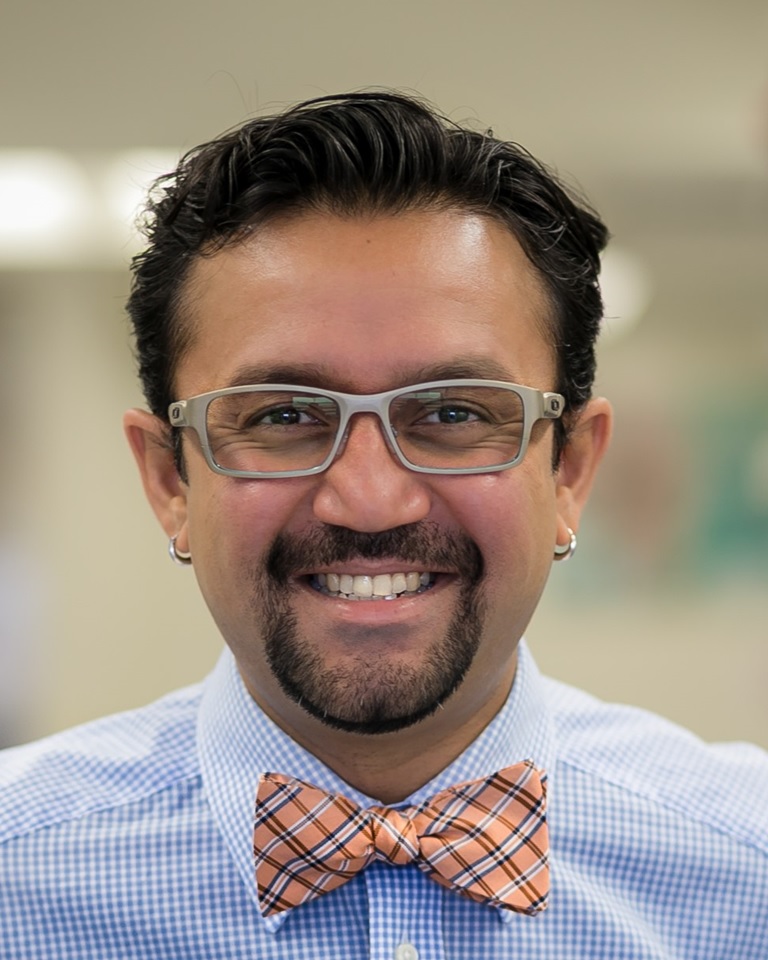
Gautam Dantas, Ph.D.
Washington University of St. Louis
Project Title: Metagenomic Engineering of Probiotic Bacteria to Improve Intestinal Colonization Dynamics and Relative Fitness
Grant ID: DP2-DK098089
Gautam Dantas, Ph.D., is an associate professor in the Department of Pathology & Immunology, the Department of Biomedical Engineering, the Deparmtment of Molecular Microbiology, and the Center for Genome Sciences & Systems Biology, at Washington University School of Medicine. He received his Ph.D. in biochemistry from the University of Washington under the guidance of Dr. David Baker, and post-doctoral training in microbial genomics from Harvard Medical School under the guidance of Dr. George Church. Dr. Dantas’s research interests and training lie at the interface of microbial genomics, synthetic biology, systems biology, and computational biology. His current research focuses on understanding the evolution and exchange of antibiotic resistance amongst diverse microbial communities, on engineering improved probiotics to treat gastrointestinal disorders, and on engineering microbial catalysts to produce value chemicals such as biofuels. He is a recipient of the AAAS Newcomb Cleveland Prize, the Harvard University Certificate for Distinction in Teaching, the NIH Director’s New Innovator Award, the Kenneth Rainin Foundation Breakthrough Award, the Edward Mallinckrodt Jr. Foundation Scholar Award, and the Academy of Science – St Louis Innovator Award. More information can be found at the Dantas Lab website.

Duc S. Dong, Ph.D.
Sanford-Burnham Medical Research Institute
Project Title: Unlocking Regenerative Potential through In Vivo Genetic Reprogramming
Grant ID: DP2-DK098092

Emily B. Falk, Ph.D.
University of Pennsylvania
Project Title: Can Neuroscience Dramatically Improve Our Ability to Design Health Communications
Grant ID: DP2-DA035156
Emily Falk is an Associate Professor of Communication at the University of Pennsylvania’s Annenberg School for Communication, with additional appointments in the Center for Cognitive Neuroscience, Department of Psychology, and Warren Center for Network Science. Prof. Falk employs methods drawn from communication science, neuroscience and psychology to traverse levels of analysis from individual behavior, to diffusion in group and population level media effects. In particular, Prof. Falk is interested in predicting behavior change following exposure to persuasive messages and in understanding what makes successful ideas spread (e.g., through social networks, through cultures). Prior to her doctoral work, Prof. Falk was a Fulbright Fellow in health policy, studying health communication in Canada. She received her bachelor’s degree in Neuroscience from Brown University, and her Ph.D. in Psychology from the University of California, Los Angeles (UCLA).

Adam Walter Feinberg, Ph.D.
Carnegie-Mellon University
Project Title: Human Myocardium Engineered Using Developmentally-Inspired Protein Scaffolds
Grant ID: DP2-HL117750
Adam Feinberg is an Associate Professor in the Departments of Biomedical Engineering and Materials Science & Engineering at Carnegie Mellon University. He received his bachelor’s degree in Materials Science & Engineering from Cornell University, his Ph.D. in Biomedical Engineering from the University of Florida and his postdoctoral training in the School of Engineering and Applied Science at Harvard University. Prof. Feinberg’s research is focused on bottom-up engineering of the extracellular matrix (ECM) to understand fundamental aspects of matrix assembly and mechanobiology and applying these systems to engineer 3D human tissues using developmental biology as an instructive template for scaffold design. In particular, he is building 2D and 3D fibronectin nanofiber scaffolds that mimic the ECM in the embryonic heart to drive myogenesis using stem cell derived human cardiomyocytes. Prof. Feinberg is a 2012 recipient of the National Institutes of Health Director’s New Innovator Award and a 2015 recipient of the National Science Foundation CAREER Award.
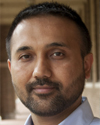
Harvinder Singh Gill, Ph.D.
Texas Tech University
Project Title: Pollen Grains as Trojan Horses for Oral Vaccination
Grant ID: DP2-HD075691

Andrew L. Goodman, Ph.D.
Yale University
Project Title: Defining the Contribution of Interpersonal Microbial Variation to Drug Metabolism
Grant ID: DP2-GM105456
Andy Goodman is an associate professor of Microbial Pathogenesis and a member of the Microbial Sciences Institute at Yale University. He received his undergraduate training in Ecology and Evolutionary Biology at Princeton University and his Ph.D. in Microbiology from Harvard Medical School. His lab is works to dissect the interactions between resident gut commensal bacteria and their human host and to understand how these processes determine microbiome composition, pathogen resistance, and drug metabolism.

Jeff Gore, Ph.D.
Massachusetts Institute of Technology
Project Title: Early Warning Indicators of Tipping Points in Biological Systems
Grant ID: DP2-AG044279
Jeff Gore is an Associate Professor in the Department of Physics at the Massachusetts Institute of Technology. His group uses laboratory microbial microcosms to explore the ecological dynamics of interacting populations. With the support of a Hertz Fellowship, Jeff received his PhD at the University of California, Berkeley working with Carlos Bustamante on single-molecule biophysics. As a Pappalardo Postdoctoral Fellow at MIT Jeff then switched into the field of systems biology, studying cooperation and cheating with Prof. Alexander van Oudenaarden. Jeff is an Allen Distinguished Investigator, Sloan Fellow, Pew Scholar in the Biomedical Sciences, NIH Pathways to Independence Awardee, and an NSF CAREER Awardee.

Xue Han, Ph.D.
Boston University
Project Title: Light-Actuatable NanoRobots for Molecular Uncaging
Grant ID: DP2-NS082126
Dr. Xue Han is a Peter Paul Career Development Assistant Professor of Biomedical Engineering at Boston University. Her lab is developing novel genetic, molecular, and optical neurotechnologies for better understanding of neurological and psychiatric diseases. The ultimate goal of her research is to discover novel biomarkers and to develop radical new treatment options for brain disorders. Dr. Han received her B.S. in Biophysics from Beijing University in 2000, and then a Ph.D. in Physiology from the University of Wisconsin-Madison in 2004. Her thesis work focused on the molecular mechanisms of synaptic transmission, after which she completed her postdoctoral training as a Helen Hay Whitney Fellow at Stanford and MIT developing novel optogenetic tools and strategies for precise neural circuit manipulations.
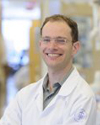
Daniel A. Heller, Ph.D.
Memorial Sloan Kettering Cancer Center
Project Title: Transient Metabolite Detection for Single-Cell Metabolomics and Diagnostics
Grant ID: DP2-HD075698
Daniel Heller is an Assistant Member at Memorial Sloan-Kettering Cancer Center and an Assistant Professor in the Department of Pharmacology at Weill Cornell Medical College. His work focuses on nanoscale technologies, including optical biosensors for cancer research and diagnosis, and targeted nanoparticles to treat metastatic cancer. Dr. Heller obtained a B.A. in history from Rice University in 2000 and a Ph.D. in chemistry from the University of Illinois in 2010, with Prof. Michael Strano. He completed a Damon Runyon Postdoctoral Fellowship in the laboratory of Prof. Robert Langer at the Koch Institute for Integrative Cancer Research at MIT. Dr. Heller is a 2012 recipient of the National Institutes of Health Director’s New Innovator Award and a 2015 Kavli Fellow.

John M. Higgins, M.D.
Massachusetts General Hospital/Harvard Medical School
Project Title: Systems Biology of In Vivo Human Blood Cell Populations
Grant ID: DP2-DK098087
John Higgins studies the in vivo dynamics of human disease processes by developing and applying mathematical and computational models that synthesize existing understanding of physiologic systems, measurements from the clinical laboratory, and patient histories from electronic medical records. His research seeks to reveal new fundamental insight into human physiology and apply those new insights to the earlier and more accurate diagnosis of disease. He has an undergraduate degree from Princeton University and worked for several years as a computer software engineer at The MathWorks, Vermeer Technologies, and Microsoft. He received an M.D. and S.M. from the Harvard-MIT Division of Health Sciences and Technology, trained as a resident in Clinical Pathology at Brigham and Women’s Hospital, and did post-doctoral research in Applied Mathematics at Harvard University. He is an Associate Professor in the Harvard Medical School Department of Systems Biology and a practicing Clinical Pathologist in the Massachusetts General Hospital Department of Pathology.

Laura A. Johnson, Ph.D.
University of Pennsylvania
Project Title: Gene-Engineered Adoptive T Cell Immunotherapy of GBM
Grant ID: DP2-CA174502
Laura Johnson did her Ph.D. in Molecular and Cellular Immunology, followed by a postdoctoral fellowship in tumor immunotherapy with Dr. Steven Rosenberg at the NCI. Dr. Johnson’s current research is focused on translating immunotherapy from the research bench into the clinic to treat patients with cancer. As tumors are derived from otherwise normal self-tissues, it can be difficult to direct and maintain an immune response against them. Identifying factors present in the tumor microenvironment that can suppress the immune response, and gene engineering receptor molecules on T cells, it is possible to redirect the immune response to destroy cancer. As Director of the Solid Tumor Immunotherapy Lab, and an Adjunct Assistant Professor at the University of Pennsylvania, Dr. Johnson is extending this type of treatment to patients with brain cancer and other solid tumors. This type of immune therapy has the potential to benefit patients with all types of cancer, and myriad other diseases.

Rahul M. Kohli, M.D., Ph.D.
University of Pennsylvania
Project Title: Combating Bacterial Drug Resistance by Targeting the Enzymes of Evolution
Grant ID: DP2-GM105444
Dr. Kohli is a biochemist and infectious diseases physician. He is an Assistant Professor and Scholar in Molecular Medicine at the University of Pennsylvania, with appointments in the Department of Medicine and the Department of Biochemistry and Biophysics. The chief objective of his research group is to study the dynamic nature of the genome by probing enzymes and pathways that diversify genomes, particularly at the immune-pathogen interface. The focus of his New Innovator Award is on targeting the enzymes that allow bacterial pathogens to diversify and escape antibiotic therapy. His lab’s work has more broadly garnered support from the Rita Allen Foundation, the Doris Duke Foundation, the Edward J. Mallinckrodt Jr. Foundation, the Harrington Discovery Institute and the Burroughs Wellcome Fund.

Daniel Kronauer, Ph.D.
Rockefeller University
Project Title: Studying the Molecular Mechanisms of Social Life Using a Novel Ant Model System
Grant ID: DP2-GM105454
Daniel Kronauer studies social evolution and behavior within complex societies, using ants as model systems. He received his diploma in biology from the University of Würzburg in Germany in 2003, where he studied the evolution of social parasitism in honeypot ants with Bert Hölldobler and Jürgen Gadau. He received his Ph.D. in 2007 from the University of Copenhagen in Denmark, where he worked with Koos Boomsma on social dynamics in army ants. After a brief postdoctoral assignment at the University of Lausanne, he was elected as a junior fellow to the Harvard Society of Fellows in 2008, and joined The Rockefeller University as assistant professor in 2011. Daniel Kronauer is a 2012 Searle Scholar, a 2013 Kavli Fellow, a 2013 Hirschl/Weill-Caulier Trusts Research Award recipient, a 2014 Klingenstein-Simons Fellow in the Neurosciences, a 2015 Sinsheimer Scholar, and a 2015 Pew Biomedical Scholar.

Björn F. Lillemeier, Ph.D.
Salk Institute for Biological Studies
Project Title: Decipher Membrane Patterns In Situ with Super-Resolution and Dynamic Microscopy
Grant ID: DP2-GM105455
Björn F. Lillemeier received his M.S. in Biochemistry from the Free University of Berlin (Germany), and his Ph.D. in Biochemistry from Cancer Research UK (London; UK). He conducted his Postdoctoral research in immunology at Stanford University. In 2009, he joined the Salk Institute for Biological Studies as an Assistant Professor in the Nomis Center for Immunobiology and Microbial Pathogenesis and the Waitt Advanced Biophotonics Center. He currently studies the molecular assembly and spatial organization of signaling pathways in the plasma membrane during T cell antigen recognition and activation. To this end, he uses an array of multidisciplinary approaches that range from single molecule microscopy in live cells to determining structural and biochemical characteristics of proteins. The overall goal of the Lillemeier laboratory is to identify ‘check-points’ in signaling pathways that are based on novel principles and can be used to modulate cellular responses for future therapies.
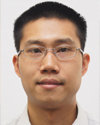
Allen P. Liu, Ph.D.
University of Michigan at Ann Arbor
Project Title: Building Artificial Platelets
Grant ID: DP2-HL117748
Allen Liu studied Biochemistry as an undergraduate at University of British Columbia and worked for a year in a liposome biotechnology lab. During his Ph.D. work in Biophysics at UC-Berkeley with Dr. Daniel Fletcher, he developed an in vitro model system to study the dynamic interplay between actin network assembly and membrane organization and deformation. As a post-doctoral fellow in Cell Biology in Drs. Sandy Schmid and Gaudenz Danuser’s labs, he worked on understanding the heterogeneity of clathrin-coated pit dynamics using a combination of single live cell imaging and computational image analysis. In 2012, Liu established his own research group at University of Michigan in the Department of Mechanical Engineering, focusing on mechanobiology of biological membrane in relation to endocytosis, cell migration, and bottom-up synthetic biology.

Wendy Liu, Ph.D.
University of California Irvine
Project Title: Engineering Biomaterials to Exert Molecular Control of Immune Cell Function
Grant ID: DP2-DE023319

Gaby Maimon, Ph.D.
Rockefeller University
Project Title: Linking Genes to Higher Brain Function by Way of Cellular Electrophysiology
Grant ID: DP2-DA035148
Dr. Maimon received his undergraduate degree from Cornell University and his Ph.D. in neuroscience from Harvard University in 2005, working in the laboratory of John Assad. As a graduate student, he studied the neuronal basis for the action initiation in primate parietal cortex. He conducted his postdoctoral training from 2005 to 2010, at the California Institute of Technology with Michael Dickinson. As a postdoc, he studied how flies decide which way to fly based on the nature of the objects in their environment. He also developed the first method for recording electrophysiological signals from single neurons in tethered, flying fruit flies. He joined The Rockefeller University as assistant professor in 2011, and his lab continues to study the neuronal basis for behavior in fruit flies, as a model for understanding how brains perform fundamental computations, more generally.

Luciano A. Marraffini, Ph.D.
Rockefeller University
Project Title: Using CRISPR Immunity to Prevent the Spread of Virulence Traits Among Pathogens
Grant ID: DP2-AI104556
Luciano Marraffini performed doctoral work at the University of Chicago and post-doctoral studies at Northwestern University. Since 2010, he is an Assistant Professor and Head of the Laboratory of Bacteriology at The Rockefeller University. He is a pioneer in the study of prokaryotic adaptive immunity conferred by CRISPR-Cas loci, discovering that these immune systems target invading DNA molecules. His research focuses on understanding the molecular mechanisms of CRISPR-Cas immunity and its role in the control of horizontal gene transfer between bacteria. Dr. Marraffini has received numerous awards, including the Searle Scholars Award, the Rita Allen Foundation Award and was selected as a Finalist for the 2015 Blavatnik National Awards for Young Scientists. For more information about Dr. Marraffini, visit http://marraffini.rockefeller.edu.

Wei Min, Ph.D.
Columbia University New York Morningside
Project Title: Label-Free Chemical Imaging for Biological Applications
Grant ID: DP2-EB016573
Dr. Wei Min graduated from Peking University, China, with a Bachelor's degree in 2003. He received his Ph.D. in Chemistry from Harvard University in 2008, studying single-molecule biophysics with Prof. Sunney Xie. After continuing his postdoctoral work in Xie group, Dr. Min joined the faculty of Department of Chemistry at Columbia University in 2010. Dr. Min's current research interests focus on developing novel optical spectroscopy and microscopy technology to address biomedical problems. His contribution has been recognized by a number of honors, including Camille Dreyfus Teacher-Scholar Award (2015), George Fraenkel Fund Award (2014), Alfred P. Sloan Research Fellowship (2013), NIH Director's New Innovator Award (2012) and Faculty Finalist of Blavatnik Awards for Young Scientists of the New York Academy of Sciences (2012).

Sua Myong, Ph.D.
University of Illinois Urbana-Champaign
Project Title: Quantitative Stepwise Analysis of RNA Interference
Grant ID: DP2-GM105453
Sua Myong is an Associate Professor in Biophysics department at Johns Hopkins University. She has been trained in molecular cell Biology and biochemistry at UC Berkeley where she obtained both her undergraduate and graduate degrees. For her postdoctoral work, she joined Dr. Taekjip Ha (HHMI, University of Illinois) who pioneered single molecule fluorescence imaging techniques. Her research focuses on molecular understanding of biological pathways including RNA interference, DNA repair, recombination, telomere processing and nucleosome remodeling. Myong is a recipient of NIH New Director’s Innovator Award, American Cancer Society Research Scholar and Human Frontier Science Program Award.

Christopher Niell, Ph.D.
University of Oregon
Project Title: Connecting Developmental Mechanisms to Visual Function and Perception
Grant ID: DP2-EY023190
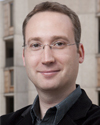
Axel Nimmerjahn, Ph.D.
Salk Institute for Biological Studies
Project Title: Novel Approaches to Study Microglia Physiology and Pathology in the Intact Brain
Grant ID: DP2-NS083038
Axel Nimmerjahn completed his Boehringer Ingelheim Fonds (B.I.F.)-supported Ph.D. in physics in the laboratories of Fritjof Helmchen and Bert Sakmann at the Max Planck Institute for Medical Research/University of Heidelberg, Germany. Following his Alexander von Humboldt and Human Frontier Science Program (HFSP)-supported postdoctoral training with Mark J. Schnitzer and Ben A. Barres at Stanford University he joined the faculty at the Salk Institute for Biological Studies in November 2010 as an assistant professor in the Waitt Advanced Biophotonics Center. His research focuses on elucidating the role of microglia - resident immune cells - and astroglia - key regulatory cells - in the healthy and diseased central nervous system through development of novel imaging tools and approaches. Nimmerjahn is recipient of a Du Bois-Reymond Award of the German Physiologic Society, Otto Hahn Medal and Award of the Max Planck Society, Scholar Award by the Rita Allen Foundation, and EUREKA Award by the NIH.
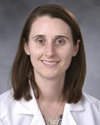
Sallie R. Permar, M.D., Ph.D.
Duke University
Project Title: Maternal Immune Protection Against Congenital CMV Infection
Grant ID: DP2-HD075699
Dr. Permar is a physician scientist focusing on the prevention and treatment of neonatal viral infections. She leads a research laboratory investigating maternal immune protection against vertical transmission of neonatal viral pathogens, including HIV and cytomegalovirus, using human cohorts and nonhuman primate models. Dr. Permar has a Ph.D. in Microbiology/Immunology from Johns Hopkins Bloomberg School of Public Health in Baltimore, an M.D. from Harvard Medical School and completed her clinical training in pediatric infectious diseases at Children’s Hospital in Boston. She is currently an Associate Professor in Pediatrics, and an Assistant Professor in Immunology and Molecular Microbiology and Genetics at Duke University Medical Center. Dr. Permar has made important contributions to the development of vaccines for prevention of infant HIV infection and the birth defects and neurologic deficits associated with congenital cytomegalovirus infection. She received several prestigious early-stage investigator awards, including the 2012 Presidential Early Career Award in Science and Engineering and the Society for Pediatrics Research Young Investigator Award in 2014.

Alexandrosc Pertsinidis, Ph.D.
Sloan Kettering Institute for Cancer Research
Project Title: Understanding Gene Transcription from First-Principles: A Single-Molecule Study
Grant ID: DP2-GM105443

Martin Prlic, Ph.D.
Fred Hutchinson Cancer Research Center
Project Title: Paving the Way for a Novel Therapeutic Approach to Combat HIV
Grant ID: DP2-DE023321
Martin Prlic is an Assistant Member in the Vaccine and Infectious Disease Division at the Fred Hutchinson Cancer Research Center. He received his Master’s degree at the University of Salzburg, Austria, and his Ph.D. training in the Microbiology, Immunology and Cancer Biology Program at the University of Minnesota in the laboratory of Dr. Stephen Jameson. Martin’s thesis work focused on unraveling the mechanisms that control T cell and natural killer (NK) cell homeostasis. Following his training as a postdoctoral fellow in the laboratory of Dr. Michael Bevan, HHMI, at the University of Washington, Martin started his own laboratory at the FHCRC in 2011. His main goals are to understand how T cell, NK cell and MAIT cell fate and function are controlled in healthy, inflamed and infected tissues and identify how these cells can be manipulated for therapeutic purposes.
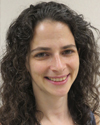
Avital Rodal, Ph.D.
Brandeis University
Project Title: Activity-Dependent Regulation of Membrane Traffic and Growth Signaling in Neurons
Grant ID: DP2-NS082127
Avital Rodal, Ph.D., is an Assistant Professor in the Biology Department at Brandeis University. Dr. Rodal received her Ph.D. in Molecular and Cell Biology from the University of California, Berkeley, where she studied the dynamics and ultrastructure of the yeast actin cytoskeleton in Dr. David Drubin's lab, and was an HHMI predoctoral fellow. She went on to do post-doctoral work at the Massachusetts Institute of Technology with Dr. Troy Littleton, investigating how developmental and cellular cues regulate neuronal growth and connectivity, and was the recipient of a Damon Runyon Postdoctoral award and the Charles King Trust of the Medical Foundation award. As a faculty member at Brandeis since 2010, she is the recipient of an NIH New Innovator Award, a Pew Scholar Award, an NIH Pathways to Independence Award, and a Basil O'Connor Scholar Award from the March of Dimes. Her research program focuses on how growth signals are mobilized and trafficked within neurons, and how manipulation of these dynamic trafficking events can be used in therapies to combat neurological disease.

Rajat Rohatgi, M.D., Ph.D.
Stanford University
Project Title: Reconstructing Primary Cilia
Grant ID: DP2-GM105448
Rajat Rohatgi M.D., Ph.D. is an assistant professor of Biochemistry and Medicine at the Stanford University School of Medicine. He graduated summa cum laude with an undergraduate degree in the Biochemical Sciences, where he worked on RNA biochemistry in Jack Szostak's lab. He then completed both M.D. and Ph.D. degrees at Harvard Medical School, working in Marc Kirschner's lab on signal transduction pathways that regulate actin assembly in cells. He finished clinical training in medicine and oncology at Stanford and completed a post-doctoral fellowship in Matt Scott's lab in the area of Hedgehog signal transduction. His laboratory works on the structure, assembly and signaling functions of the primary cilium, micron-scale signaling organelle that projects from most cells in our bodies and is required for the detection and processing of optical, chemical and mechanical signals.

Anne Schaefer, M.D., Ph.D.
Mount Sinai School of Medicine
Project Title: Cognate Microglia-Neuron Interaction and Its Role in Inflammation
Grant ID: DP2-MH100012
Dr. Anne Schaefer M.D., Ph.D., is an Assistant Professor of Neuroscience and Psychiatry at the Friedman Brain Institute at Icahn School of Medicine at Mount Sinai, New York. She joined Mount Sinai to start her own laboratory in 2011, after completion of the postdoctoral studies at Dr. Paul Greengard's Laboratory at The Rockefeller University in New York. Dr. Schaefer’s research focuses on the epigenetic mechanisms of neurological disordes such as epilepsy, autism, and neurodegeneration. Recently her lab pioneered studies of the epigenetic control of microglia diversification and function. Dr. Schaefer has been awarded with a NARSAD Young Investigator Award, Cure Challenge Award, Seaver Autism Research Award, Harold and Golden Lamport Research Award, and was named a 2014 Kavli Frontiers of Science Fellow by the National Academy of Sciences (NAS).
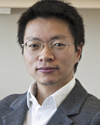
Xiaokun Shu, Ph.D.
University of California San Francisco
Project Title: New Principle-Based Technologies for Identifying Transient Protein Interactions
Grant ID: DP2-GM105446
Xiaokun Shu is an Assistant Professor in the Department of Pharmaceutical Chemistry and Cardiovascular Research Institute at UC San Francisco. In 2007, Dr. Shu finished his Ph.D. in Physics at University of Oregon with Prof. Jim Remington. Then he did a postdoctoral fellowship in the Department of Pharmacology at UC San Diego with Prof. Roger Tsien. During postdoctoral training, Dr. Shu developed an infrared fluorescent protein tag and a genetically encoded tag for correlated fluorescence and electron microscopy. He is applying Physics, Chemistry and Engineering to develop technologies for biology and to use new technologies to answer biological questions.
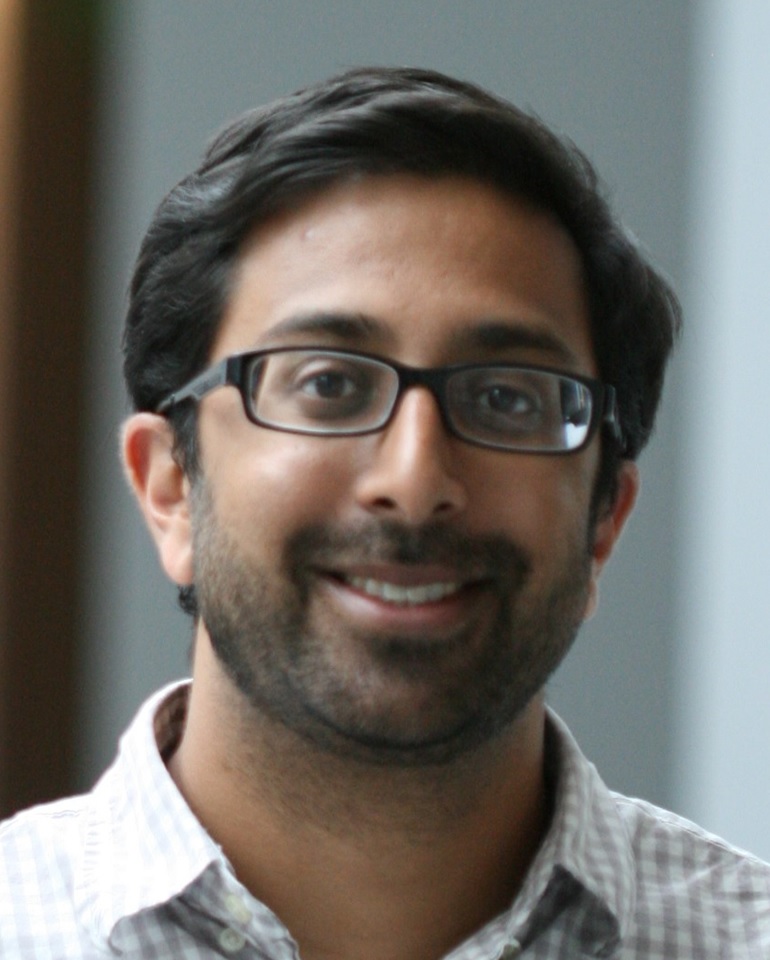
Vikaas S. Sohal, M.D., Ph.D.
University of California San Francisco
Project Title: Reverse Engineering the Prefrontal Microcircuit
Grant ID: DP2-MH100011
Dr. Sohal studied Applied Mathematics at Harvard and Cambridge before completing his M.D. and Ph.D. degrees at Stanford. He stayed at Stanford for a psychiatry residency, during which he also worked with Karl Deisseroth using optogenetics to study the mechanisms and functions of brain oscillations. He is currently a faculty member in the Department of Psychiatry and Center for Integrative Neuroscience at the University of California, San Francisco. His laboratory seeks to combine experimental and theoretical approaches in order to understand the “big picture” of how circuits in the prefrontal cortex function, and how they go awry in psychiatric disorders such as schizophrenia and autism. He continues to see psychiatric outpatients for one half day each week.

David Stoltz, M.D., Ph.D.
University of Iowa
Project Title: Airway Goblet Cells: Friend or Foe?
Grant ID: DP2-HL117744

Ming Su, Ph.D.
Northeastern University
Project Title: Enhanced Radiation Therapy with Nanoscale Frequency Modulators
Grant ID: DP2-EB016572
Ming Su is an associate professor at Department of Chemical Engineering of Northeastern University. He received his Ph.D. in Materials Science and Engineering from Northwestern University in 2004, and worked as a Eugene P. Wigner Fellow at Oak Ridge National Laboratory for two years. He was on faculty of University of Central Florida and Worcester Polytechnic Institute before joining Northeastern in 2014. His research interest is nanomedicines, where he uses nanoparticles to detect multiple biomarkers, to enhance radiation therapy, to kill bacteria, and to find out fake drugs.

Alexander Eckehart Urban, Ph.D.
Stanford University
Project Title: Genomic and Epigenomic Effects of Large CNV in Neurons from iPSC
Grant ID: DP2-MH100010
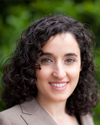
Ilana B. Witten, Ph.D.
Princeton University
Project Title: Therapeutic Plasticity: A Novel Paradigm for Treating Addiction
Grant ID: DP2-DA035149
Ilana Witten is an assistant professor in the Neuroscience Institute and the Department of Psychology at Princeton University. She did her Ph.D. work in the laboratory of Dr. Eric Knudsen at Stanford University, investigating crossmodal integration and plasticity in barn owls. She subsequently did her postdoctoral research in the laboratory of Dr. Karl Deisseroth, where she worked on developing and applying optogenetic strategies to dissect the function of defined cell-types within reward circuits in rodents. Her lab applies electrophysiology, optogenetics, and imaging to understand how reward circuits mediate normal behavior, as well as how they dysfunction in mental disorders.

Kim A. Woodrow, Ph.D.
University of Washington
Project Title: Nanomaterials for Engineering Protection in the Genital Mucosa
Grant ID: DP2-HD075703

Andrew Yoo, Ph.D.
Washington University School of Medicine in St. Louis
Project Title: MicroRNA and Neural Factor-Mediated Direct Reprogramming of Cell Fates
Grant ID: DP2-NS083372
Andrew Yoo is an Assistant Professor in the Department of Developmental Biology at Washington University School of Medicine. He did his Ph.D. work in the laboratory of Dr. Iva Greenwald at Columbia University, followed by postdoctoral work with Dr. Gerald Crabtree at Stanford University. He has a long standing interest in understanding genetic pathways that specify cell fates during development, and currently studies the role of microRNAs in regulating the activity of chromatin remodeling complexes during neural development and conversion of non-neuronal cells into neurons. Dr. Yoo’s work is also supported by the awards from the Ellison Medical Foundation, the Edward J. Mallinckrodt Jr. Foundation and the Presidential Early Career Award for Scientists and Engineers.
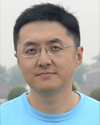
Siyang Zheng, Ph.D.
Pennsylvania State University- University Park
Project Title: Integration of Flexible Micro Spring Array and High Throughput Microfluidics for Obtaining Clinical Relevant Information from Circulating Tumor Cells
Grant ID: DP2-CA174508
Siyang Zheng is currently an associate professor of Biomedical Engineering at Pennsylvania State University. He received B.S. in Biological Science and Biotechnology from Tsinghua University, and Ph.D. in Electrical Engineering from California Institute of technology while studying miniaturized blood count technologies. He established the Penn State Micro & Nano Integrated Biosystem (MINIBio) Laboratory since 2009 focusing on developing innovative micro and nano technologies, applying these technologies to study complicated biological systems, and providing engineering solutions to current and future healthcare. His recent work includes label-free enrichment system for circulating tumor cells and viruses, nanomaterial integrated device and systems for biomarker detection and innovative devices for in vivo applications.

Ann C. Zovein, M.D.
University California San Francisco
Project Title: Engineering Human Endothelium for Hematopoietic Stem Cell Production
Grant ID: DP2-HL117743
Ann Zovein M.D., is an Assistant Professor of Pediatrics and an Investigator in the Cardiovascular Research Institute at UCSF. Her basic science laboratory studies the biology of blood vessels, and in particular their role in blood stem cell development. Dr. Zovein received both her B.S. in biomedical engineering and medical doctorate from Boston University. She then trained at UCLA Mattel Children's Hospital in Pediatrics with sub-specialization in Neonatology. There she also obtained subsequent postdoctoral training in the Department of Molecular, Cell, and Developmental Biology at UCLA in the laboratory of Luisa Iruela-Arispe Ph.D. Her long term goals include combining her training in engineering, medicine, stem and developmental biology to address novel and challenging questions in the fields of vascular and stem cell biology; ultimately translating stem cell science for the treatment of cardiovascular and hematologic disease.


